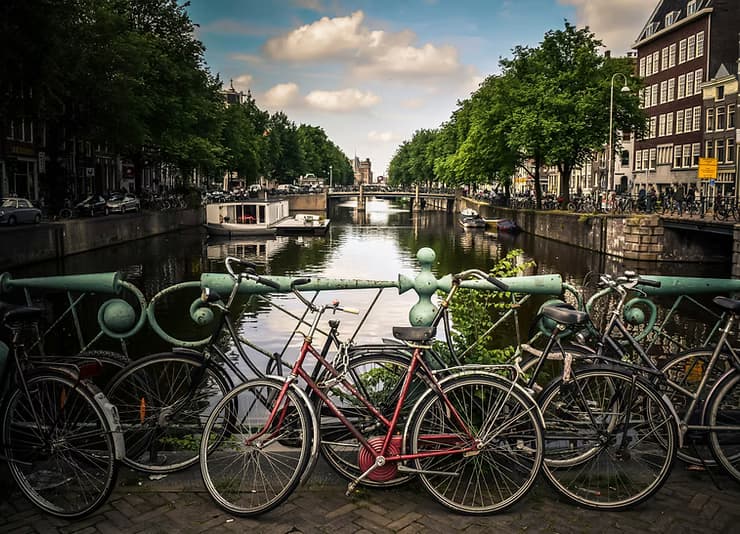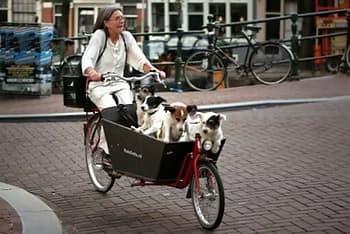
How Amsterdam is Setting a Green Example for the Rest of Europe
Amsterdam may be best known for its beautiful canals, vibrant culture, and classic Dutch architecture. In 2010, its iconic canal belt was officially recognised as a UNESCO World Heritage Site. But today, this beloved city faces growing threats from climate change.
According to a 2020 study, Amsterdam is projected to be the third most impacted city by climate change by 2050. That future is already starting to show: a severe drought in 2018 and a record heatwave in 2019 left parks dry, grass scorched, and shrubs withered. Even earlier, in 2014, intense rainfall and sudden cloudbursts caused major flooding, prompting the city to launch its innovative Rainproof strategy—a plan to make the city more resilient to extreme rainfall.
Amsterdam is preparing for a climate-challenged future by setting bold sustainability goals. The city aims to cut carbon emissions by 55% by 2030, and 95% by 2050, ultimately becoming a fully circular city. But achieving this doesn’t just depend on policy. The municipality is clear: "The biggest differences we will make are as residents of Amsterdam."
A City Where Sustainability Is Second Nature
Having lived in Amsterdam, I saw first-hand how sustainability is woven into everyday life. Supermarkets have well-established return schemes for plastic and glass bottles. Local markets offer fresh, seasonal produce in every neighbourhood. And of course—everyone cycles. In fact, Amsterdammers cycle more than 2 million kilometres every single day. It’s completely normal to see a cargo bike zipping by, loaded with children, dogs, and groceries.
Sustainability extends beyond transport. The city is filled with second-hand and vintage clothing shops, and vegan options are everywhere—from cosy cafés to large supermarkets. Eco-conscious living isn’t a trend here; it’s a lifestyle.

Innovation That Inspires the World
Amsterdam has become a powerhouse for green innovation, with projects that are influencing cities across the globe.
- In 2018, Dutch organic supermarket Ekoplaza opened the world’s first plastic-free aisle right in Amsterdam. This landmark initiative helped inspire over 100 plastic-free stores in the UK by 2020.
- The startup Plastic Whale organises teams of volunteers to collect plastic waste directly from the city’s canals—by boat.
- In 2019, Amsterdam installed the world’s first "bubble barrier"—a technology that captures plastic waste in the water without blocking boats or fish. It’s now being deployed in Asia, home to 8 of the world’s 10 most polluting rivers.
These pioneering projects prove that Amsterdam is not only talking about change—it’s building it.
A Blueprint for Urban Sustainability
Whether it's through cutting-edge environmental tech, strong climate policies, or simple daily habits like cycling and recycling, Amsterdam is already adapting to the climate crisis. It’s a city that’s embracing the future while staying grounded in community action—and that’s what sets it apart.
As extreme weather becomes more common, Amsterdam’s model offers hope—and a roadmap—for other European cities aiming to go green.
Cover image by Adrien Olichon via Unsplash.
